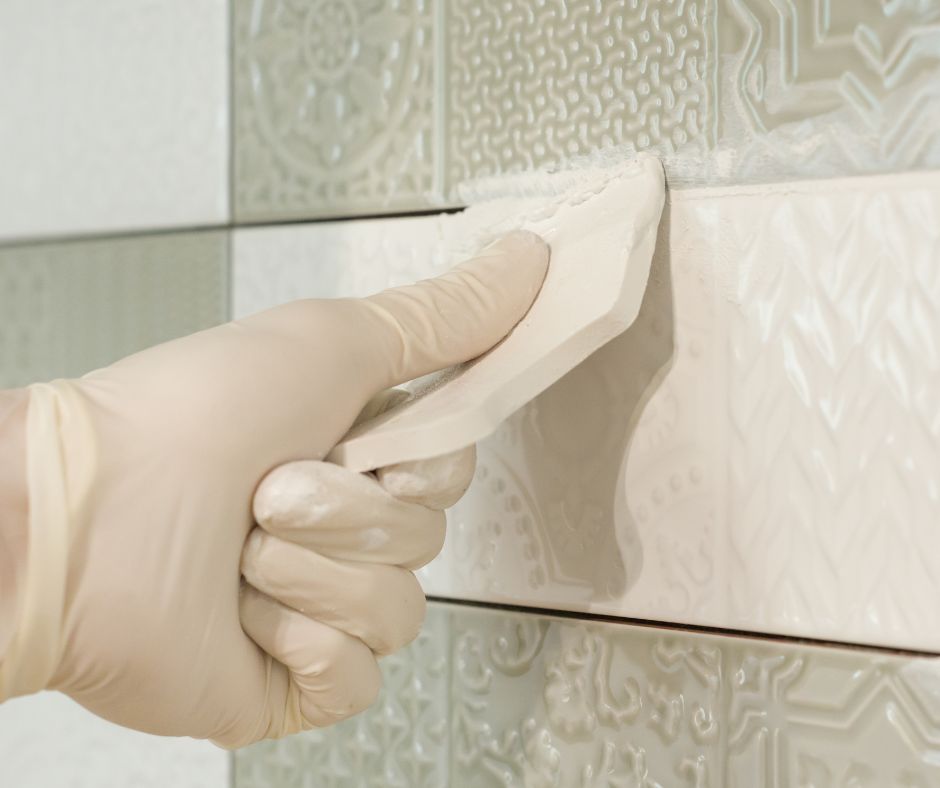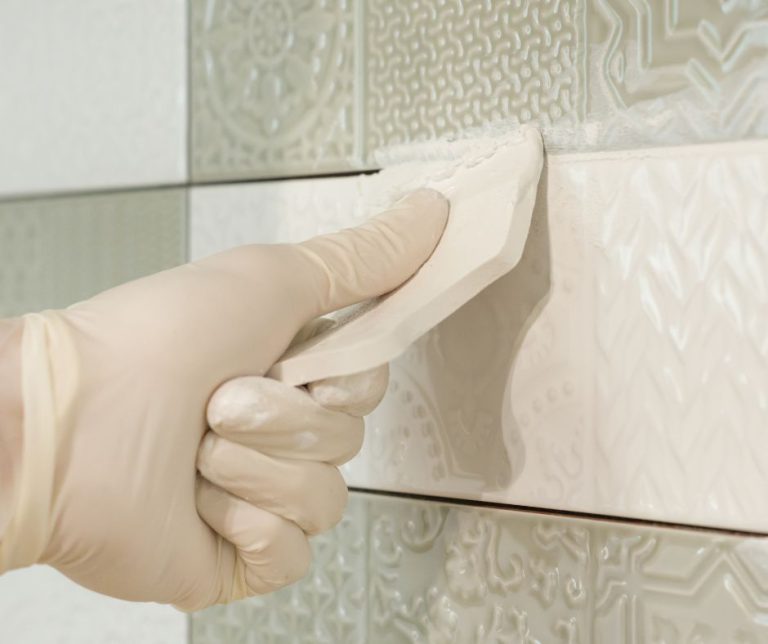Have you noticed unsightly holes appearing in your shower tile grout? Don’t worry! While these imperfections can detract from your shower’s overall aesthetic appeal, they are manageable and simple to fix. It’s crucial to address these issues promptly to avoid more severe complications down the line. Here’s the good news – these holes are simple to repair!
This comprehensive guide will lead you through a detailed, step-by-step process to effectively fix holes in your shower tile grout. We will delve into the underlying causes of grout damage and provide valuable preventive measures to help you avoid these problems in the future. Understanding these aspects is vital to maintaining your shower’s integrity and appearance, ensuring a clean and inviting space where you can relax and unwind.

Your Ultimate Guide to Mastering the Shower Tile Grout Repair Process
Repairing those grout holes may seem intimidating, but it’s a straightforward task with the right guidance. Allow me to walk you through each essential step, ensuring your shower looks pristine and inviting once again. By following this guide, you can restore the beauty of your bathroom while enhancing its overall functionality and longevity, making it a space you can truly enjoy.
Step #1: Assemble Your Must-Have Tools for a Successful Grout Repair Project
Before embarking on your grout repair journey, it’s essential to collect all the necessary supplies to make the task efficient and effective. Here’s what you’ll need to gather to ensure a smooth process:
- Grout removal tools
- Caulk gun
- Grout that matches your existing tile color
- Grout float for precise application
- A sponge for cleanup
- A bucket of water for rinsing
- Masking tape for neat edges
Don’t forget to wear gloves and safety glasses for protection while you work. Having all your tools organized before you begin will streamline the entire process, making it less stressful and more enjoyable.
Also Read: Epoxy Grout VS Cement Grout
Step #2: Prepare Your Shower Area Thoroughly for Grout Repair Success
With your tools in hand, it’s time to prepare the area for repair. Start by applying masking tape around the grout lines where the holes are located. This will ensure that the new grout remains in place, creating a clean and professional finish that enhances the overall look of your tiles. Proper preparation is key to achieving long-lasting results that will stand the test of time.
Next, use your grout removal tool to carefully extract the old, damaged grout. Exercise caution during this process to avoid scratching the tiles; if you’re working in a shower, be especially mindful not to damage the waterproof membrane beneath the tiles. This preparation step is crucial, as it provides a clean and stable surface for the new grout to adhere to effectively, preventing future issues.
Also Read: Why Grout Gets Stained And Damaged
Step #3: Clean Your Workspace Thoroughly for Optimal Grout Application
Once the old grout is removed, it’s time to clean the area thoroughly. Use a slightly damp cloth to wipe down the surface, removing all dust and debris left from the grout removal process. It’s vital to allow the area to dry completely before applying the new grout; a dry surface will significantly enhance the adhesion of the new grout, ensuring a more durable repair that lasts longer and maintains its appearance over time.
Step #4: Expertly Apply New Grout for a Flawless Finish
Now comes the exciting part! Prepare your grout according to the instructions provided on the packaging. You want to achieve the perfect consistency – not too watery and not overly thick. This balance is essential for effective application and long-lasting results that will keep your shower looking new.
Utilize your grout float to apply the new grout over the holes, ensuring you push it in at an angle. This technique helps fill all gaps and creates a smooth finish that blends seamlessly with existing grout. Once the holes are filled, use the float to level the surface and remove any excess grout, ensuring it looks tidy and professionally done. A meticulous approach here ensures longevity and aesthetic appeal, making your shower a beautiful focal point.
Step #5: Carefully Wipe Away Excess Grout for a Polished Appearance
After allowing the grout to set for a short period, take your damp sponge and gently wipe away the excess grout. Be sure to rinse the sponge frequently to avoid letting grout dry on it, which can complicate the cleaning process and impact the final look. This step requires patience, but the effort will yield a polished, professional appearance that impresses anyone who enters your bathroom. Take your time to ensure perfection before letting everything dry completely and removing the masking tape for a clean, finished look.
Also Read: Regrouting Your Bathroom Grout
Step #6: Optional but Recommended: Seal the Grout for Enhanced Durability
If you’re interested in enhancing the durability of your grout, consider applying a grout sealer. This step isn’t mandatory, but it can significantly protect against moisture and stains, thereby extending the life of your repair. Sealing your grout is a proactive approach to maintenance that can save you time and money in the long run.
If you choose to seal the grout, wait a few days for it to fully cure before applying the sealer. Follow the manufacturer’s instructions for the best results, and you’ll add an extra layer of protection to keep your grout looking fresh and vibrant for years to come. This investment in care can save you from costly repairs down the road.

Identify the Root Causes of Grout Damage and Discover Prevention Strategies
Have you ever wondered what leads to those unsightly holes in your grout in the first place? Understanding the causes is essential for effective prevention and maintenance of your shower’s integrity.
The primary culprits are typically moisture and aggressive cleaning methods. Grout is inherently porous and can deteriorate over time, particularly if not sealed adequately. Moreover, showers are subjected to constant water exposure and frequent cleaning, which can exacerbate the wear and tear on your grout. This damage can also occur due to your house’s natural settling over time, which causes minor shifts that result in cracks or holes in the grout, necessitating timely repairs.
To prevent future holes from appearing, consider sealing your grout after installation or repair. Additionally, using gentle cleaning products can prolong the life of your grout. Avoid harsh chemicals that can degrade the grout over time, and instead opt for mild solutions that are safe for tile surfaces. Regularly checking your shower grout for any signs of damage can also be beneficial in catching issues early.
Addressing any issues as soon as they arise will help prevent them from worsening and leading to more significant problems. A proactive maintenance routine can save you from costly repairs in the future, ensuring your shower remains a beautiful and functional space.
Key Insights for Successful Grout Repair in Your Shower
Repairing holes in your shower tile grout is a task you can accomplish on your own, and it can prevent more significant, costly issues from arising in the future. Taking the time to address these minor repairs can lead to a more functional and visually appealing bathroom that you can be proud of.
If you prefer to have professionals handle this task, we are here to assist you. Our team can efficiently complete the regrouting process and relieve you of the hassle, ensuring that the job is done right. Regardless of your choice, addressing those holes will help maintain your shower’s functionality and aesthetic appeal for years to come, creating a space that feels welcoming and is easy to maintain.
What Steps Should You Take If Your Contractor Left Holes in Your Grout?
If you’ve recently had renovations in your bathroom and discovered holes in the grout, it’s essential to contact your contractor without delay. A reputable professional should ensure that no holes or imperfections are left behind in the grout. Most reliable contractors will be more than willing to return and rectify these issues, ensuring you receive the quality service you deserve to maintain your bathroom’s integrity.
How to Effectively Repair Pin Holes in Grout for a Seamless Finish?
To address pin holes in the grout, start by cleaning the area and lightly dampening the surrounding grout. Next, press a small amount of grout into the holes, smoothing the patched area with your finger for a seamless finish that blends in perfectly with the surrounding grout. This simple yet effective method can make a significant difference in the appearance of your grout, restoring its integrity and charm for a polished look.
What’s the Process for Repairing Missing Grout in the Shower Efficiently?
Fixing missing grout is quite similar to repairing holes. Ensure the area is thoroughly cleaned, apply new grout to the affected spots, and smooth it out using your grout float to achieve a flawless appearance. Remove any excess grout, and allow it to dry completely for optimal results. Following these steps will ensure a neat and tidy finish, enhancing the overall look of your shower and making it a more enjoyable space.

The Article: Holes in Shower Tile Grout? Effective Solutions Inside! first appeared on https://writebuff.com.




I really appreciate this guide you’ve laid out! The issue of grout holes in the shower seems to be something many of us can relate to—it’s like a silent enemy that creeps up on us when we least expect it. I remember the first time I noticed them in my own shower; I honestly thought it was just a sign that I needed to renovate the entire bathroom. But once I found out how manageable these repairs can be, it made me feel a lot less anxious about tackling the issue.
It’s interesting how something like grout holes can feel so overwhelming at first, isn’t it? I remember when I first encountered them too; it felt like this big, daunting task looming over me. The thought of a full renovation just seemed so extreme. But once I learned just how simple the fixes can be, it really changed my perspective on home maintenance.
It’s great to hear that you found the guide helpful! The grout holes can really feel like a daunting problem, can’t they? It’s so easy to fall into the trap of thinking major renovations are the only solution when, in reality, these smaller repairs can often save us time, money, and stress.